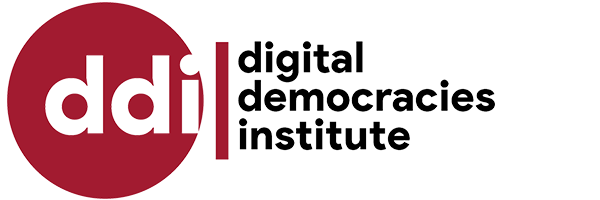
Scaling and Mainstreaming Data Fluencies
About the Project
For data fluencies methods to become widely adopted, it is crucial that we reach and foster a network of emerging and established researchers. This stream therefore will mainstream and scale all these projects by creating multidisciplinary courses/modules at the undergraduate and graduate level, by providing Dissertation Research Scholarships (DRSs), and through Research Development Workshops (RDWs). The DRSs and RDWs will be administered by SSRC.
The Critical and Creative Data Studies (CCDS) course will consolidate the project outcomes into teachable materials to aid the training of future scholars and leaders and extend our outcomes beyond the duration of this grant. These courses will create data fluencies that foster multivocal futures, and help students understand misinformation, disinformation, and algorithmic discrimination. We will develop undergraduate and graduate course syllabi and materials, which will be taught independently or integrated into related courses already taught by each faculty member participating in the grant at their home institutions. In addition, students will develop skills to critically engage with data through creative and experimental practice, using hands-on data science labs and tools to explore theories learned in class. We will also make the course material available to the public through Scalar, a digital platform developed by Mellon and McPherson, and share our experiences and best practices with researchers beyond the participating institutions through conferences, based on the iterations of this course.
In addition to these courses, we will expand our network and mainstream our work through RDWs and DRSs to be administered by the SSRC. Building on a nearly 100-year-old tradition of advancing research and building capacity for the next generation of humanities scholars and social scientists, including interdisciplinary approaches at the intersection of technology and society, the SSRC will support this effort through a series of RDWs, a series of publications that will translate scholarship for broad audiences, and dissertation support for advanced graduate students. These activities are designed to catalyze new research, advance public scholarship, and bridge consortium partners and external stakeholders, including scholars and practitioners drawn from the Council’s extensive interdisciplinary and intersectoral networks of research from the Just Tech Program, the Media & Democracy program, Social Data Initiative (SDI), international Summer Institutes in Computational Social Science (SICSS), and the broader Emerging Technologies and Democracy cluster. Each of these opportunities will fortify existing research networks and expand them by incentivizing emerging and established scholars to adopt these methodologies. For example, RDWs allow scholars at all levels to share early-stage work across an interdisciplinary network, receive formative feedback, and seek small funds to support the next stages of their project. A small selection committee composed of relevant members of the SSRC Just Tech and Media & Democracy networks will be convened to select DRS awardees. RDW participants will be chosen in consultation with SSRC staff and a faculty chair for each respective RDW.
People Involved
At SFU
PhD candidate in the School of Communication.
Canada 150 Research Chair in New Media
Around the World
Dannah Dennis is a cultural and political anthropologist who studies social media as a space for the practice of everyday citizenship and for the formation of personal, political, and gendered subjectivities. She has published articles on microcelebrity and citizenship in Nepal’s digital diaspora, on the gendered and regional exclusions that shape Nepali citizenship law, on the politics of road-building and infrastructure in Kathmandu, and on the multiple meanings of Nepal’s claim to Buddha’s birthplace, along with ethnographic fiction exploring the obligations of care in families shaped by transnational migration. She received her PhD from the University of Virginia in 2017 and has held teaching positions at NYU Shanghai, Hamilton College, and Bucknell University.
Molly Laas directs the Media and Democracy program at the Social Science Research Council. A former science journalist, she received her PhD in 2017 from the Program in the History of Science, Medicine, and Technology at the University of Wisconsin-Madison. Prior to joining the SSRC, she was a Mellon/ACLS public fellow at Data & Society Research Institute.
Sofina Tanni is program assistant for the Media & Democracy program and Social Data Initiative at the Social Science Research Council. She graduated from the City College of New York (CCNY) with a BA in Anthropology and a minor in Studio Art. Before working at the SSRC, Sofina was a researcher at CCNY’s Nanotechnology lab where she worked on advancing biomedical research. Sofina was also the Vice President of her Undergraduate Student Government, where she advocated for a more inclusive campus and academic life for her fellow students.
Catalina Vallejo is program director for the Social Science Research Council’s Just Tech program. Catalina holds an M.A. and Ph.D. in sociology from the University of Virginia, an M.A. in cultural studies from Universidad de los Andes, and a B.A. in sociology from the Universidad Nacional de Colombia. Her doctoral work focused on post-conflict in Colombia and Peru and was funded by the SSRC and the National Science Foundation. Before joining the SSRC, she worked in development consulting. She is fluent in English and Spanish, grew up in Bogotá (Colombia), and travels frequently to the region.
